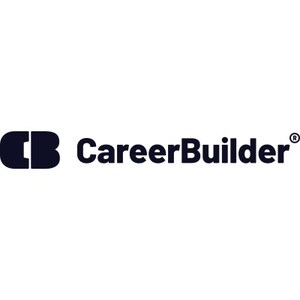More Than One-in-Five Hiring Managers Say They Are Less Likely to Hire a Candidate Who Didn't Send a Thank-You Note, Finds New CareerBuilder Survey
-- Hiring managers share what catches their eye on a resume--
CHICAGO, April 14, 2011 /PRNewswire/ -- Job seekers who are not following proper etiquette are hurting their chances of landing a job, even if they may be a good fit for the position. More than one-in-five (22 percent) hiring managers say they are less likely to hire a candidate if they don't send a thank-you note after an interview, according to new data released by CareerBuilder. Of those who would dismiss a candidate for the faux pas, 86 percent say it shows a lack of follow-through and an additional 56 percent say it sends the message that they aren't really serious about the opportunity. This national survey was conducted among more than 2,800 U.S. employers between February 21 and March 10, 2011.
View the infographic here: http://bit.ly/g9I4U2
What's best, regular mail or email? The majority (89 percent) of hiring managers say it is okay to send a thank-you note in the form of an email, with half saying it is actually the way they prefer to receive them. When it comes to industries, the bulk of IT hiring managers say they prefer to receive email thank-you notes more than any other industry surveyed, while the majority of those in the financial services say it's not preferred, but still okay.
"While the job market has begun to move in the right direction, competition continues to remain high for open positions and job seekers need to stay on their toes," said Rosemary Haefner, vice president of human resources for CareerBuilder. "Employers not only expect thank-you notes, but cover letters as well. Approximately one-third of hiring managers say a lack of cover letter will likely result in them not considering a candidate for their open position."
Once they have read a candidate's cover letter, seven-in-ten hiring managers say they prefer to see a career summary at the top of a resume instead of an objective and, more than half (57 percent) think a resume should be two pages long. When asked what catches their eye the most on a resume, hiring managers said:
- Bulleted list of accomplishments (51 percent)
- Career summary at the top (40 percent)
- Relevant key words (39 percent)
- Resume that is customized to the open position (36 percent)
"One-in-five hiring managers say they spend 30 seconds or less looking at a resume, so all your communications need to be professional and to the point," added Haefner. Other job search correspondence tips include:
Cover Letter
Your cover letter is your golden opportunity to make a strong first impression that will entice employers to want to know you better. Make sure it paints a more thorough picture of your educational and work-related background; the cover letter is where you can bring your specific experiences to life.
Resume
Always assume your resume will be scanned by a computer. Companies both large and small are using keyword-search software in their hiring processes these days, so it's important to make sure you always send out a search-ready resume.
Prove it! Don't just explain what you did at your last job, but how you did it and what impact it had on the company's bottom line. The more quantifiable results you can highlight, the better.
Thank-you note
Repeat, repeat, repeat. While a lot of what you include in your thank-you note may seem repetitive, restate your enthusiasm about the job and your qualifications for the position. Include any interesting topic that may have come up during the interview.
Cover all your bases. If you interviewed with more than one hiring manager, send a thank-you note to each person.
Survey Methodology
These surveys were conducted online within the U.S. by Harris Interactive© on behalf of CareerBuilder.com among 2,878 U.S. hiring managers (employed full-time; not self-employed; non-government) ages 18 and over between February 21 and March 10, 2011 (percentages for some questions are based on a subset, based on their responses to certain questions) and among 2,482 U.S. employers (employed full-time; not self-employed; non-government) ages 18 and over between November 15 and December 2, 2010 (percentages for some questions are based on a subset, based on their responses to certain questions). With pure probability samples of 2,878 and 2,482 one could say with a 95 percent probability that the overall results have a sampling error of +/- 1.83 and +/-1.97 percentage points, respectively. Sampling error for data from sub-samples is higher and varies.
About CareerBuilder®
CareerBuilder is the global leader in human capital solutions, helping companies target and attract their most important asset – their people. Its online career site, CareerBuilder.com®, is the largest in the United States with more than 23 million unique visitors, 1 million jobs and 32 million resumes. CareerBuilder works with the world's top employers, providing resources for everything from employment branding and data analysis. More than 9,000 websites, including 140 newspapers and broadband portals such as MSN and AOL, feature CareerBuilder's proprietary job search technology on their career sites. Owned by Gannett Co., Inc. (NYSE: GCI), Tribune Company, and The McClatchy Company (NYSE: MNI). CareerBuilder and its subsidiaries operate in the United States, Europe, Canada and Asia. For more information, visit www.careerbuilder.com.
Media Contact:
CareerBuilder
Michael Erwin
773-527-3637
[email protected]
http://www.twitter.com/CareerBuilderPR
SOURCE CareerBuilder
WANT YOUR COMPANY'S NEWS FEATURED ON PRNEWSWIRE.COM?
Newsrooms &
Influencers
Digital Media
Outlets
Journalists
Opted In




Share this article